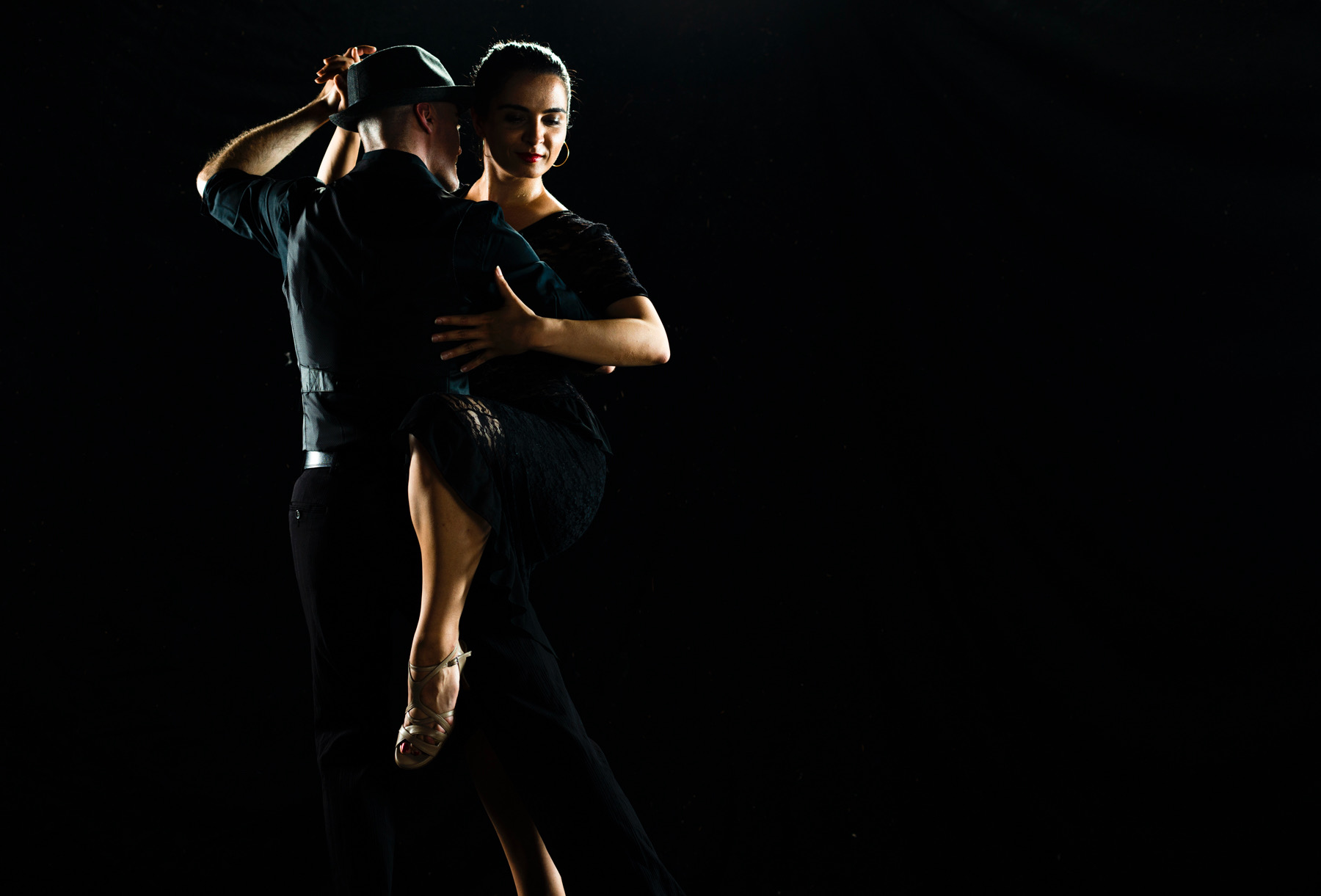To me, to call Argentine tango a partner dance is overly simplistic, but to call it an intense spiritual and philosophical experience might raise some eyebrows. Even though each one of us makes the decision to learn how to dance tango for a variety of, usually very personal, reasons, we all very soon come to the same realizations – tango is power and tango is as much about self-love and self-knowledge as it is about loving and knowing the other. I explain Argentine tango to my beginner students as the ultimate human intimacy and connection, this crazy wild animal of passion and patience that woes us to itself and transforms our existence.
What makes Argentine tango unique is that it is a completely improvisational dance between a leader (that makes all the decisions and controls the dance) and a follower (that completely lets go and reacts in the moment to the lead). There is no basic step, no one shared technique. Subjectively, to me tango really is a quiet process of trust – trusting yourself and trusting the other. There is magic in the vulnerability of allowing a stranger to come physically and mentally so close to you in order to create the intimacy and communication that dancing tango requires. A vulnerability that becomes possible solely from having awareness of your own level of comfort and boundaries but also sensing and respecting the comfort and boundaries of the other.
Tango is also very much about trusting to quiet the mind – to stop the at times overwhelming and never ceasing flow of random thoughts that has personally often felt debilitating and limiting. In my first three years of dancing, I brought to tango the insecurities, personal struggles and self doubt that had haunted me my entire life. During the first six months, which tend to be the most challenging for the beginner dancer, I almost quit on a daily basis. It took me that amount of time to go to my first social tango event outside of my school and to put myself out there and dance with strangers. The biggest block – the constant, infuriating loop of thinking that I was not good enough and that there’s nothing I can bring to the tango table with all the other wonderful and beautiful dancers out, always lurking in the back of my mind as I joined the rest of the social dancers. However, every time I didn’t cave to the loop and I went out to socially dance and had a beautiful moment of complete surrender with a friend or a stranger, my power grew and my self-acceptance and self-love strengthened. Yes, it took years to stop the loop and I would lie if I say it never comes back to haunt me. But just as meditation teaches us to find the space between the constant flow of often negative thoughts and our true self, tango taught me that there is a space between the anxiety of the self-doubt and the tiring marathon of the physical overreaction. In that space are my patience, my kindness and my love and they all first start with me and direct internally towards me. In the intimacy of the present moment and the embrace of a stranger, I chose to trust in myself so I can then choose to trust another person and, together, create magic.
Through tango, I learned that I am enough. And that when I stumble, when I miss a move, when I get so tangled up in a step that I almost fall in a public thud to the floor, all I have to do is breathe, pause, stand up and keep dancing. Because even in that moment I am enough.


